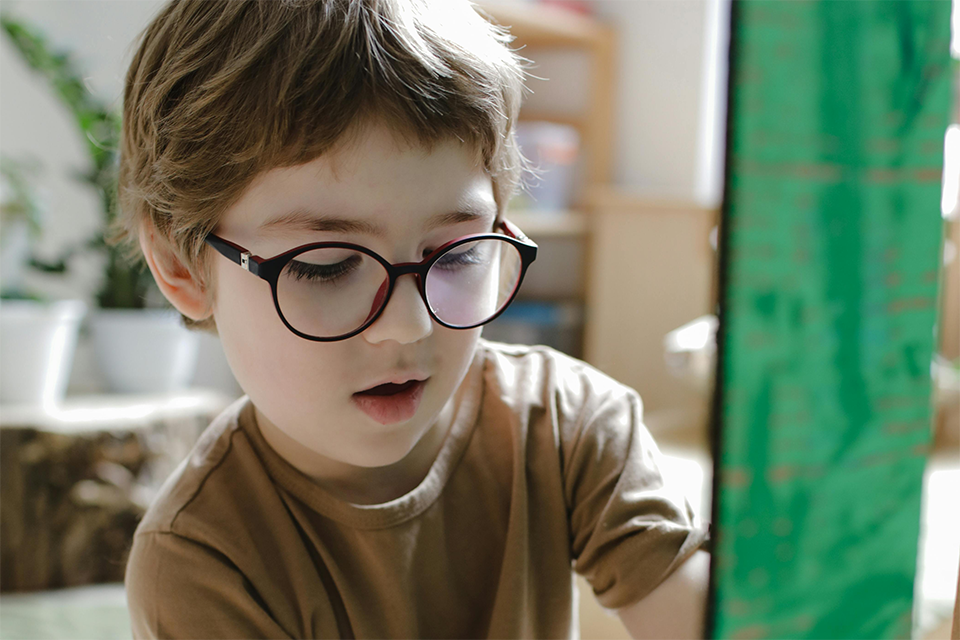It’s recommended to book your child’s first eye test around age three, or earlier if you notice any concerns. Children don’t need to be able to read (nor know their letters) to be tested for common vision issues like long sight, short sight, astigmatism, squints, or lazy eye (amblyopia). A child’s eye test is a special experience tailored for their age group – we aim to find out as much as we can about their eyesight and eye health in a fun and engaging way!

All children under 16 and full-time students under 19 are entitled to free regular NHS eye tests. However, we know that many children start school with undiagnosed problems. Early detection is vital—not only can their educational development be hampered if their eyesight is not optimal, conditions like squints and lazy eyes must be addressed before age eight to avoid permanent vision loss. Squints affect 4–7% of children, and lazy eyes 2–3%.
Myopia (short sight) is increasingly common globally and often develops between ages 8–10. Left unmanaged, it can impact daily life and career choices and also increases risks of eye disease during adulthood. At Rawlings we offer Myopia Management treatments designed to slow or even halt progression. Learn more on our Myopia Management page or speak with one of our Optometrists.
Contact lenses are suitable for many children, even while their prescription is changing. Disposable lenses make this easy and safe. Some children start wearing lenses as early as age 10, and sometimes younger, especially in myopia management cases or if others in the household already wear lenses.
The NHS also contributes to the cost of children’s glasses. Explore our stylish and comfortable range of children’s frames at our stores.
Rawlings is a long-established independent business serving the communities of twelve towns in Hampshire and Surrey, where we have built a strong reputation for the quality of our professional expertise and service.
Rawlings & Sons (Opticians) Limited is registered in England and Wales No 02862381. Rawlings & Sons (Opticians) Limited are a credit broker and not a lender. We offer credit products from Mitsubishi HC Capital UK PLC trading as Novuna. Rawlings & Sons (Opticians) Limited is authorised and regulated by the Financial Conduct Authority FRN 990854. Credit subject to age and status. Finance is only available for audiology products The interest free plans which are repayable within 12 months and in no more than 12 instalments are not regulated by the Financial Conduct Authority. Unregulated plans are not covered by the Financial Ombudsman Service.
© Rawlings Opticians 2026 Contact | Privacy Policy | Feedback | FAQ | Complaints | Disclosure Statement | Cookies Policy
Contact | Privacy Policy | Feedback | FAQ | Complaints | Disclosure Statement | Cookies Policy
© Rawlings Opticians 2025